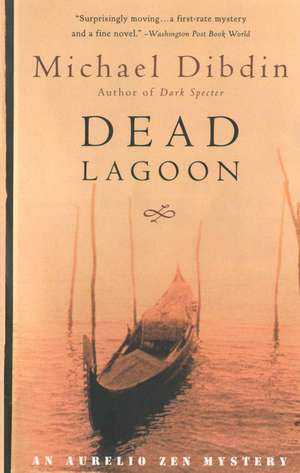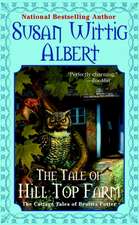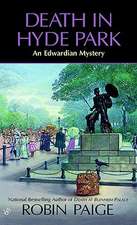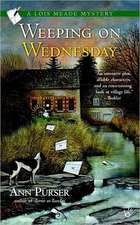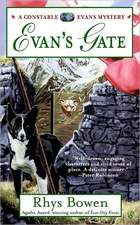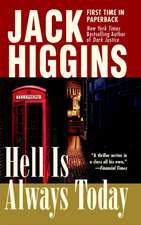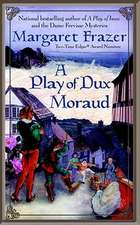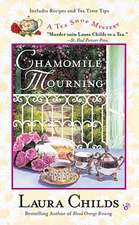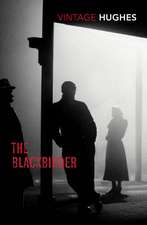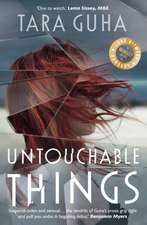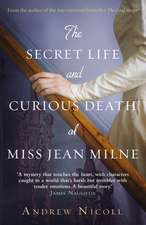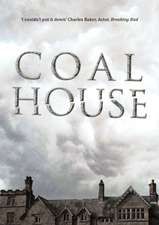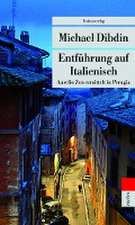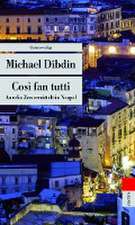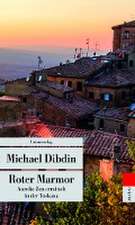Dead Lagoon: An Aurelio Zen Mystery: Vintage Crime/Black Lizard
Autor Michael Dibdinen Limba Engleză Paperback – 31 dec 1995
| Toate formatele și edițiile | Preț | Express |
|---|---|---|
| Paperback (2) | 71.67 lei 3-5 săpt. | +16.55 lei 7-13 zile |
| FABER & FABER – 17 feb 2011 | 71.67 lei 3-5 săpt. | +16.55 lei 7-13 zile |
| Vintage Crime/Black Lizard – 31 dec 1995 | 106.64 lei 3-5 săpt. |
Din seria Vintage Crime/Black Lizard
-
 Preț: 96.74 lei
Preț: 96.74 lei -
 Preț: 100.98 lei
Preț: 100.98 lei -
 Preț: 116.64 lei
Preț: 116.64 lei -
 Preț: 100.57 lei
Preț: 100.57 lei -
 Preț: 101.58 lei
Preț: 101.58 lei -
 Preț: 101.58 lei
Preț: 101.58 lei -
 Preț: 104.39 lei
Preț: 104.39 lei -
 Preț: 100.76 lei
Preț: 100.76 lei -
 Preț: 106.23 lei
Preț: 106.23 lei -
 Preț: 103.44 lei
Preț: 103.44 lei -
 Preț: 101.58 lei
Preț: 101.58 lei -
 Preț: 81.06 lei
Preț: 81.06 lei -
 Preț: 100.35 lei
Preț: 100.35 lei -
 Preț: 80.41 lei
Preț: 80.41 lei -
 Preț: 128.00 lei
Preț: 128.00 lei -
 Preț: 95.51 lei
Preț: 95.51 lei -
 Preț: 107.68 lei
Preț: 107.68 lei -
 Preț: 123.57 lei
Preț: 123.57 lei -
 Preț: 109.71 lei
Preț: 109.71 lei -
 Preț: 95.10 lei
Preț: 95.10 lei -
 Preț: 113.56 lei
Preț: 113.56 lei -
 Preț: 91.27 lei
Preț: 91.27 lei -
 Preț: 114.69 lei
Preț: 114.69 lei -
 Preț: 92.74 lei
Preț: 92.74 lei -
 Preț: 86.61 lei
Preț: 86.61 lei -
 Preț: 98.78 lei
Preț: 98.78 lei -
 Preț: 101.17 lei
Preț: 101.17 lei -
 Preț: 94.35 lei
Preț: 94.35 lei -
 Preț: 102.70 lei
Preț: 102.70 lei -
 Preț: 91.05 lei
Preț: 91.05 lei -
 Preț: 97.34 lei
Preț: 97.34 lei -
 Preț: 111.58 lei
Preț: 111.58 lei -
 Preț: 121.82 lei
Preț: 121.82 lei -
 Preț: 96.11 lei
Preț: 96.11 lei -
 Preț: 96.33 lei
Preț: 96.33 lei -
 Preț: 104.48 lei
Preț: 104.48 lei -
 Preț: 112.97 lei
Preț: 112.97 lei -
 Preț: 99.94 lei
Preț: 99.94 lei -
 Preț: 111.58 lei
Preț: 111.58 lei -
 Preț: 102.40 lei
Preț: 102.40 lei -
 Preț: 106.45 lei
Preț: 106.45 lei -
 Preț: 100.57 lei
Preț: 100.57 lei -
 Preț: 94.06 lei
Preț: 94.06 lei -
 Preț: 69.75 lei
Preț: 69.75 lei -
 Preț: 98.15 lei
Preț: 98.15 lei -
 Preț: 101.39 lei
Preț: 101.39 lei -
 Preț: 109.49 lei
Preț: 109.49 lei -
 Preț: 95.51 lei
Preț: 95.51 lei -
 Preț: 93.22 lei
Preț: 93.22 lei
Preț: 106.64 lei
Nou
Puncte Express: 160
Preț estimativ în valută:
20.41€ • 21.30$ • 16.89£
20.41€ • 21.30$ • 16.89£
Carte disponibilă
Livrare economică 15-29 martie
Preluare comenzi: 021 569.72.76
Specificații
ISBN-13: 9780679753117
ISBN-10: 0679753117
Pagini: 320
Dimensiuni: 132 x 207 x 19 mm
Greutate: 0.23 kg
Editura: Vintage Crime/Black Lizard
Seria Vintage Crime/Black Lizard
ISBN-10: 0679753117
Pagini: 320
Dimensiuni: 132 x 207 x 19 mm
Greutate: 0.23 kg
Editura: Vintage Crime/Black Lizard
Seria Vintage Crime/Black Lizard
Recenzii
"Surprisingly moving . . . a first-rate mystery and a fine novel."—Washington Post Book World"Dibdin's plot is as elegantly elaborate as the crisscrossing canals of Venice."—Newsday"The author has transcended his own superb craftsmanship by working [two] story lines into a structure of pure steel, and by making it the foundation of a serious study of modern-day Venice."—The New York Times Book Review
Notă biografică
Michael Dibdin was born in England and raised in Northern Ireland. He attended Sussex University and the University of Alberta in Canada. He spent five years in Perugia, Italy, where he taught English at the local university. He went on to live in Oxford, England and Seattle, Washington. He was the author of eighteen novels, eleven of them in the popular Aurelio Zen series, including Ratking, which won the Crime Writers’ Association Gold Dagger, and Cabal, which was awarded the French Grand Prix du Roman Policier. His work has been translated into eighteen languages. He died in 2007.
Extras
A ragged line of geese passed overhead, silhouetted against the caul of high cirrus, heading out towards the open sea. Over towards Marghera, a bloated sun subsided into a dense bank of smog, dwarfing the striped stacks of the refineries. Giacomo noted the rippled layers of cloud spreading across the sky like wash from a motorboat. The weather was changing. Tomorrow would be squally and cold, a bitter north-easterly bora raising choppy seas on the lagoon.
But tomorrow was another day. For now the air was still, the water smooth as oil, the creak of the oars against the thole and the gentle plashing of the blades the only sound. People thought Giacomo a bit odd, sculling out to tend his nets in this day and age. No one rowed any more except the yuppy oarsmen from the city's boating clubs. But Giacomo had no interest in reviving the picturesque traditions of the past. If he preferred oars to outboards, he had his reasons. On an evening such as this, the noise of a motor carried for miles across the water, and Giacomo did not want any inquisitive ears tracking his progress through the shoals and along the winding creeks to his destination.
His eyes alertly scanned the water ahead. The channel he was following was unmarked and the tide was ebbing fast. It would have been better to come at another time, but Giacomo simply carried out the orders he received by telephone. Tomorrow, the voice had said, so tomorrow it must be. He would be well enough paid for his pains. Meanwhile, he needed all his skill. The flat-bottomed skiff drew only a few centimetres, but it was always easy to run aground in these treacherous backwaters.
He raised his head, locating the long low ridge, exuberantly green, towards which he was making such slow progress along the tortuous windings of the tideway. To the east, the desolate swamps and saltflats of the laguna morta-the dead marshlands, unrefreshed by tidal currents-merged seamlessly into the gathering dusk. The schoolteacher on Burano said that there had once been a splendid city here, with fine palaces and churches and paved streets, all swallowed up hundreds of years ago by the shifting topography of the lagoon.
Standing in the stern of the boat, Giacomo paused to light a cigarette. The teacher was a good soul, and would pay well over the odds for crabs and mussels, but she'd had the misfortune to be born on the mainland, and it was well known that mainlanders would believe anything. Giacomo breathed out a lungful of smoke, which drifted indolently away across the water towards the drooping heads of the wild grasses on a nearby mudbank. The dull roar of a plane taking off from the international airport at Tessera reminded him of his business. Dipping the crossed oars into the water once more, he leaned forward with his whole body, urging the sandolo across the shallow water.
The light was fading fast by the time Giacomo beached the skiff on the flats exposed by the ebbing tide. He stepped out, his waders sinking into the mud, and hauled the craft clear of the water. Before him rose a mass of creepers and brambles, overgrown bushes and stunted trees, spilling down over the low wall sealing off the island. At the centre, a set of steps led to a bricked-up gateway Slinging a blue canvas bag over his shoulder, Giacomo squelched off across the quagmire towards a stretch of wall completely submerged beneath the burgeoning greenery.
Beneath the overhanging shrubbery it was already night. Giacomo took a rubber-covered torch from his pocket and shone it round. A rat jumped from a hollow in the wall into the shallow water at its base. The hollow had been formed by the removal of two of the flat ochre bricks of the three-hundred-year-old wall. Giacomo remembered the effort it had taken, hammering away with a mallet and a cold chisel for the best part of twenty minutes. They built to last in those days, even for such clients as these. Other bricks had been gouged out above, and using these holds Giacomo scaled the wall and perched on the top. All was still. Even in broad daylight, people gave this particular island a wide berth. Nothing would persuade anyone in their right mind to venture there once darkness had fallen.
The surface inside was much higher, almost level with the top of the wall. Giacomo stepped down and started to push his way through the undergrowth, following a series of almost imperceptible markers: the torn ligaments of a branch dangling from a bush, a patch of flattened grass, the sucker of a bramble bush, thick as a squid's tentacle, lopped off clean by a fisherman's gutting-knife. The ground crunched and slithered underfoot, as though he were walking on layers of broken crockery.
A sudden scuttling noise brought him to a halt, wielding his torchbeam like a staff. The island was infested with snakes, and Giacomo tried with limited success to convince himself that this was the only feature of the place which scared him. He lit another cigarette to calm his nerves and pushed on through the spiny undergrowth, across the grating, shifting surface, until he made out the final mark: a dessicated bough leaning across a briar patch as though it had fallen from the dead tree above. One contorted branch pointed towards him, marking the path back. Another, bifurcated like a petrified hand, stuck out at an angle to one side. Following it, Giacomo quickly located the mound of shards, white in the torchlight. At the same moment, he heard the scuttling sound again.
It was only when he unslung the bag from his shoulder that he realised he had forgotten to pack the small spade he usually brought. Well, he wasn't going back, that was for damn sure. Nor had he any intention of touching the things with his hands. Tossing away his cigarette, he snapped a length off the dead bough and started to prod and jab at the mound, freeing a long femur here, the smooth gleam of a scapula there, a rounded skull, a big hip and pelvis. At last the dull gleam of the oilcloth wrapping appeared.
The stick broke as he redoubled his efforts. He hastily tore another from the branch behind him, and when that broke too used his boot to free the package. Breathing hard, he unwound the oilcloth, revealing three blocks wrapped in silver foil and plastic shrinkwrapping. They were about the size and shape of a cork float, but much heavier-precisely one kilogram each, in fact. Giacomo carefully lifted them in turn and transferred them to the canvas bag. Then he added the oilcloth wrapping and fastened the bag before turning for home.
The torch beam wavered and probed the darkness all around, seeking the gnarled bough which pointed the route home. It was nowhere to be seen.
Giacomo searched the shrubbery in increasing desperation until he found the broken branch entangled in the thorns. It must have keeled over when he snapped part of it off to use as a spade. For a moment he almost gave way to panic. Then, with an effort, he got a grip on himself and started to study the undergrowth all around. It must be that way, surely, to the right of that squat, lopsided shrub. Yes, that was it. He recognized it.
A few metres further on, the path, if that's what it had been, petered out in a mass of briars twice as high as a man. He must have been mistaken. He started back, but he was unable to find the clearing where the cache had been located. Then he saw what looked like one of the markers guiding him back to the boat and threw himself at it, plunging through the shrubbery like a speedboat through breaking waves, ripping and tearing the undergrowth apart until its spiky tendrils fouled his limbs and brought him up short in an impenetrable mass of brambles.
Instinctively he glanced up at the sky, but the nebulous wash of cloud drifting in from the east had swallowed the stars. The evil jungle, its roots fattened on hundreds of thousands of human skeletons, pressed in on every side, shutting out the world.
Giacomo muttered a fervent prayer, a thing he had last done when a vicious combination of wind and tide had caught him and Filippo on a lee shore just beyond the northern mole at the entrance to the Porto di Lido. It had worked then, but he was less sanguine that his patron saint would intercede for him this time. Fishing was one thing, his present business quite another. Still, reciting the prayer helped to calm his panic. Disentangling himself from the briars, he worked his way through the undergrowth, searching for one of the signs which marked the path, trying not to think about what he was grinding and crushing under his boots.
When the man in white appeared, blocking his path, Giacomo felt a brief surge of relief at the thought that he was no longer alone. Then he remembered where he was, and terror rose in his throat like vomit. He forced himself to look again. The figure was still there, splayed across a mass of brambles, the panels of its jacket rippling and heaving as though in the wind. But there was no wind. Then he saw the face, what was left of it, and the rats running in and out of the sleeves. He took it in at one glance-a mass of half-eaten meat and tissue, the chest a bloody cage, the white suit ripped to shreds-and dropped the bag and fled, powered by an irresistible dread, a superstitious horror which sent him stumbling across that dune of human bones, tearing through the vegetation parasitic on that rich meal, running for his life and his reason from the isle of the dead.
On the way home from the bakery, she stops to buy some salad and fruit. The pale rain is still falling limply, covering the pavements in a greasy sheen and raising a rash of pockmarks on the surface of the water. Sebastiano and his son huddle over their produce under the green awning jury-rigged from the masts at either end of the barge.
'Eh, contessa! Take a look at this fennel! Fresh from Sant'Erasmo, the genuine stuff.'
Even though she knows he's trying to make a sale, Ada can't help feeling flattered at the way he calls her 'contessa', without a trace of irony or obsequiousness, the way people did when titles were just a fact of life, a description like the colour of your hair or eyes. So she orders some of his overpriced fennel along with the salad leaves, apples and grapes. It is while Sebastiano is weighing out the fruit that Ada catches sight of the figure fixing her with his moronic leer from the other side of the canal, his cloak billowing about him.
'What's the matter?' says Sebastiano, looking up from the makeshift counter of slatted wooden boxes piled high with potatoes and lemons and tomatoes. Following her fixed gaze, he turns to look. The dead-end alley opposite is empty except for some scaffolding whose protective tarpaulin screen is flapping in the stiff easterly wind.
'Are you all right?' he asks, looking at her with barely veiled anxiety.
A wherry full of plastic sacks of sand and cement comes up the canal, its temporary foredeck of planks supporting a battered wheelbarrow and a cement mixer lying on its side. Going to the Pagan house, as Ada still thinks of it, even though Maria Pagan has been dead a year or more. Now some foreigner has bought the property and is paying a fortune to have it done up . . .
'Carry la Contessa Zulian's shopping home for her,' Sebastiano barks at his son, a gangling youth wearing a jacket inscribed Washington Redskins, a single gold earring and a baseball cap turned back to front. The boy scowls and mutters something under his breath to which Sebastiano responds with a guttural monosyllable. Father and son sway back and forth as their barge heaves at its moorings under the swell of the passing wherry, pinching the bald tyres which serve as fenders. Ada Zulian recalls seeing a motor vehicle, many years ago, when her parents took her to the Lido. Waving away the offers of help, she tells Sebastiano she'll pay him next week and trudges off, listing slightly to port, a bulging blue-and-white striped plastic bag in each hand.
On the stone pillar supporting the railing of the bridge perches a seagull with a bit of bloody liver in its beak. Ada carefully avoids looking it in the eye, lest she be beguiled. As she reaches the top step of the bridge, the gull tumbles sideways off the pillar, unfolding its wings and skimming the surface of the water before rising with a lazy flap to catch the wind which tosses it high above the houses like a scrap of paper.
'Ada!'
At first she is loathe to look round, in case there is no one there. But when the call is repeated she recognizes the voice of Daniele Trevisan. There he is, leaning out of his window on the other side of the canal.
'How's it going?' he asks.
Ada Zulian is suddenly overwhelmed by a giddy conviction that all this has happened before. Which it has, of course, years ago, before the war, before her marriage, when they were both young. Only then it was she at the window and Daniele below in the street, murmuring sweet nothings . . .
'Are you all right?' asks Daniele Trevisan, just as Sebastiano had earlier.
Ada grasps her bags and plods down the steps of the bridge, greasy from the rain. Everyone is always so worried about her! Ever since Rosetta suddenly reappeared, forcing Ada to go to ground among the lunatics on San Clemente, people have been overwhelmingly solicitious. She knows that she should be grateful for this show of concern, but in fact it rather gets on her nerves. In any case, what is she supposed to say? She knows all too well that it is impossible for her to discuss her real problems without all that solicitude dissolving in knowing looks and sniggers.
'The place is full of ghosts,' she mutters.
'What?'
'They should do something.'
Daniele regards her from his lofty perch with a gaze as unblinking as the gull's.
'Who should?'
Ada shrugs vaguely.
'The authorities. I'm thinking of calling them, making a complaint.'
Daniele Trevisan waves his hands and sighs.
'Come up a minute, Ada. Sit down and have a cup of coffee and a chat.'
She looks at him and shakes her head.
'I must be getting home.'
'Don't call the police!' he implores her. 'You don't want to start telling people you've been seeing ghosts again.'
'There was mud on the floor,' says Ada Zulian, but he doesn't hear.
'Keep the police out of it!' insists Daniele. 'If you need to talk to anyone, talk to me.'
But tomorrow was another day. For now the air was still, the water smooth as oil, the creak of the oars against the thole and the gentle plashing of the blades the only sound. People thought Giacomo a bit odd, sculling out to tend his nets in this day and age. No one rowed any more except the yuppy oarsmen from the city's boating clubs. But Giacomo had no interest in reviving the picturesque traditions of the past. If he preferred oars to outboards, he had his reasons. On an evening such as this, the noise of a motor carried for miles across the water, and Giacomo did not want any inquisitive ears tracking his progress through the shoals and along the winding creeks to his destination.
His eyes alertly scanned the water ahead. The channel he was following was unmarked and the tide was ebbing fast. It would have been better to come at another time, but Giacomo simply carried out the orders he received by telephone. Tomorrow, the voice had said, so tomorrow it must be. He would be well enough paid for his pains. Meanwhile, he needed all his skill. The flat-bottomed skiff drew only a few centimetres, but it was always easy to run aground in these treacherous backwaters.
He raised his head, locating the long low ridge, exuberantly green, towards which he was making such slow progress along the tortuous windings of the tideway. To the east, the desolate swamps and saltflats of the laguna morta-the dead marshlands, unrefreshed by tidal currents-merged seamlessly into the gathering dusk. The schoolteacher on Burano said that there had once been a splendid city here, with fine palaces and churches and paved streets, all swallowed up hundreds of years ago by the shifting topography of the lagoon.
Standing in the stern of the boat, Giacomo paused to light a cigarette. The teacher was a good soul, and would pay well over the odds for crabs and mussels, but she'd had the misfortune to be born on the mainland, and it was well known that mainlanders would believe anything. Giacomo breathed out a lungful of smoke, which drifted indolently away across the water towards the drooping heads of the wild grasses on a nearby mudbank. The dull roar of a plane taking off from the international airport at Tessera reminded him of his business. Dipping the crossed oars into the water once more, he leaned forward with his whole body, urging the sandolo across the shallow water.
The light was fading fast by the time Giacomo beached the skiff on the flats exposed by the ebbing tide. He stepped out, his waders sinking into the mud, and hauled the craft clear of the water. Before him rose a mass of creepers and brambles, overgrown bushes and stunted trees, spilling down over the low wall sealing off the island. At the centre, a set of steps led to a bricked-up gateway Slinging a blue canvas bag over his shoulder, Giacomo squelched off across the quagmire towards a stretch of wall completely submerged beneath the burgeoning greenery.
Beneath the overhanging shrubbery it was already night. Giacomo took a rubber-covered torch from his pocket and shone it round. A rat jumped from a hollow in the wall into the shallow water at its base. The hollow had been formed by the removal of two of the flat ochre bricks of the three-hundred-year-old wall. Giacomo remembered the effort it had taken, hammering away with a mallet and a cold chisel for the best part of twenty minutes. They built to last in those days, even for such clients as these. Other bricks had been gouged out above, and using these holds Giacomo scaled the wall and perched on the top. All was still. Even in broad daylight, people gave this particular island a wide berth. Nothing would persuade anyone in their right mind to venture there once darkness had fallen.
The surface inside was much higher, almost level with the top of the wall. Giacomo stepped down and started to push his way through the undergrowth, following a series of almost imperceptible markers: the torn ligaments of a branch dangling from a bush, a patch of flattened grass, the sucker of a bramble bush, thick as a squid's tentacle, lopped off clean by a fisherman's gutting-knife. The ground crunched and slithered underfoot, as though he were walking on layers of broken crockery.
A sudden scuttling noise brought him to a halt, wielding his torchbeam like a staff. The island was infested with snakes, and Giacomo tried with limited success to convince himself that this was the only feature of the place which scared him. He lit another cigarette to calm his nerves and pushed on through the spiny undergrowth, across the grating, shifting surface, until he made out the final mark: a dessicated bough leaning across a briar patch as though it had fallen from the dead tree above. One contorted branch pointed towards him, marking the path back. Another, bifurcated like a petrified hand, stuck out at an angle to one side. Following it, Giacomo quickly located the mound of shards, white in the torchlight. At the same moment, he heard the scuttling sound again.
It was only when he unslung the bag from his shoulder that he realised he had forgotten to pack the small spade he usually brought. Well, he wasn't going back, that was for damn sure. Nor had he any intention of touching the things with his hands. Tossing away his cigarette, he snapped a length off the dead bough and started to prod and jab at the mound, freeing a long femur here, the smooth gleam of a scapula there, a rounded skull, a big hip and pelvis. At last the dull gleam of the oilcloth wrapping appeared.
The stick broke as he redoubled his efforts. He hastily tore another from the branch behind him, and when that broke too used his boot to free the package. Breathing hard, he unwound the oilcloth, revealing three blocks wrapped in silver foil and plastic shrinkwrapping. They were about the size and shape of a cork float, but much heavier-precisely one kilogram each, in fact. Giacomo carefully lifted them in turn and transferred them to the canvas bag. Then he added the oilcloth wrapping and fastened the bag before turning for home.
The torch beam wavered and probed the darkness all around, seeking the gnarled bough which pointed the route home. It was nowhere to be seen.
Giacomo searched the shrubbery in increasing desperation until he found the broken branch entangled in the thorns. It must have keeled over when he snapped part of it off to use as a spade. For a moment he almost gave way to panic. Then, with an effort, he got a grip on himself and started to study the undergrowth all around. It must be that way, surely, to the right of that squat, lopsided shrub. Yes, that was it. He recognized it.
A few metres further on, the path, if that's what it had been, petered out in a mass of briars twice as high as a man. He must have been mistaken. He started back, but he was unable to find the clearing where the cache had been located. Then he saw what looked like one of the markers guiding him back to the boat and threw himself at it, plunging through the shrubbery like a speedboat through breaking waves, ripping and tearing the undergrowth apart until its spiky tendrils fouled his limbs and brought him up short in an impenetrable mass of brambles.
Instinctively he glanced up at the sky, but the nebulous wash of cloud drifting in from the east had swallowed the stars. The evil jungle, its roots fattened on hundreds of thousands of human skeletons, pressed in on every side, shutting out the world.
Giacomo muttered a fervent prayer, a thing he had last done when a vicious combination of wind and tide had caught him and Filippo on a lee shore just beyond the northern mole at the entrance to the Porto di Lido. It had worked then, but he was less sanguine that his patron saint would intercede for him this time. Fishing was one thing, his present business quite another. Still, reciting the prayer helped to calm his panic. Disentangling himself from the briars, he worked his way through the undergrowth, searching for one of the signs which marked the path, trying not to think about what he was grinding and crushing under his boots.
When the man in white appeared, blocking his path, Giacomo felt a brief surge of relief at the thought that he was no longer alone. Then he remembered where he was, and terror rose in his throat like vomit. He forced himself to look again. The figure was still there, splayed across a mass of brambles, the panels of its jacket rippling and heaving as though in the wind. But there was no wind. Then he saw the face, what was left of it, and the rats running in and out of the sleeves. He took it in at one glance-a mass of half-eaten meat and tissue, the chest a bloody cage, the white suit ripped to shreds-and dropped the bag and fled, powered by an irresistible dread, a superstitious horror which sent him stumbling across that dune of human bones, tearing through the vegetation parasitic on that rich meal, running for his life and his reason from the isle of the dead.
On the way home from the bakery, she stops to buy some salad and fruit. The pale rain is still falling limply, covering the pavements in a greasy sheen and raising a rash of pockmarks on the surface of the water. Sebastiano and his son huddle over their produce under the green awning jury-rigged from the masts at either end of the barge.
'Eh, contessa! Take a look at this fennel! Fresh from Sant'Erasmo, the genuine stuff.'
Even though she knows he's trying to make a sale, Ada can't help feeling flattered at the way he calls her 'contessa', without a trace of irony or obsequiousness, the way people did when titles were just a fact of life, a description like the colour of your hair or eyes. So she orders some of his overpriced fennel along with the salad leaves, apples and grapes. It is while Sebastiano is weighing out the fruit that Ada catches sight of the figure fixing her with his moronic leer from the other side of the canal, his cloak billowing about him.
'What's the matter?' says Sebastiano, looking up from the makeshift counter of slatted wooden boxes piled high with potatoes and lemons and tomatoes. Following her fixed gaze, he turns to look. The dead-end alley opposite is empty except for some scaffolding whose protective tarpaulin screen is flapping in the stiff easterly wind.
'Are you all right?' he asks, looking at her with barely veiled anxiety.
A wherry full of plastic sacks of sand and cement comes up the canal, its temporary foredeck of planks supporting a battered wheelbarrow and a cement mixer lying on its side. Going to the Pagan house, as Ada still thinks of it, even though Maria Pagan has been dead a year or more. Now some foreigner has bought the property and is paying a fortune to have it done up . . .
'Carry la Contessa Zulian's shopping home for her,' Sebastiano barks at his son, a gangling youth wearing a jacket inscribed Washington Redskins, a single gold earring and a baseball cap turned back to front. The boy scowls and mutters something under his breath to which Sebastiano responds with a guttural monosyllable. Father and son sway back and forth as their barge heaves at its moorings under the swell of the passing wherry, pinching the bald tyres which serve as fenders. Ada Zulian recalls seeing a motor vehicle, many years ago, when her parents took her to the Lido. Waving away the offers of help, she tells Sebastiano she'll pay him next week and trudges off, listing slightly to port, a bulging blue-and-white striped plastic bag in each hand.
On the stone pillar supporting the railing of the bridge perches a seagull with a bit of bloody liver in its beak. Ada carefully avoids looking it in the eye, lest she be beguiled. As she reaches the top step of the bridge, the gull tumbles sideways off the pillar, unfolding its wings and skimming the surface of the water before rising with a lazy flap to catch the wind which tosses it high above the houses like a scrap of paper.
'Ada!'
At first she is loathe to look round, in case there is no one there. But when the call is repeated she recognizes the voice of Daniele Trevisan. There he is, leaning out of his window on the other side of the canal.
'How's it going?' he asks.
Ada Zulian is suddenly overwhelmed by a giddy conviction that all this has happened before. Which it has, of course, years ago, before the war, before her marriage, when they were both young. Only then it was she at the window and Daniele below in the street, murmuring sweet nothings . . .
'Are you all right?' asks Daniele Trevisan, just as Sebastiano had earlier.
Ada grasps her bags and plods down the steps of the bridge, greasy from the rain. Everyone is always so worried about her! Ever since Rosetta suddenly reappeared, forcing Ada to go to ground among the lunatics on San Clemente, people have been overwhelmingly solicitious. She knows that she should be grateful for this show of concern, but in fact it rather gets on her nerves. In any case, what is she supposed to say? She knows all too well that it is impossible for her to discuss her real problems without all that solicitude dissolving in knowing looks and sniggers.
'The place is full of ghosts,' she mutters.
'What?'
'They should do something.'
Daniele regards her from his lofty perch with a gaze as unblinking as the gull's.
'Who should?'
Ada shrugs vaguely.
'The authorities. I'm thinking of calling them, making a complaint.'
Daniele Trevisan waves his hands and sighs.
'Come up a minute, Ada. Sit down and have a cup of coffee and a chat.'
She looks at him and shakes her head.
'I must be getting home.'
'Don't call the police!' he implores her. 'You don't want to start telling people you've been seeing ghosts again.'
'There was mud on the floor,' says Ada Zulian, but he doesn't hear.
'Keep the police out of it!' insists Daniele. 'If you need to talk to anyone, talk to me.'
Descriere
Dibdin gives readers a deliciously creepy new novel featuring the urbane and skeptical Aurelio Zen. In this new mystery, Zen returns to his native Venice, searching for a missing American millionaire and encountering an assortment of corpses--including a suspiciously new skeleton that surfaces on the Isle of the Dead.
